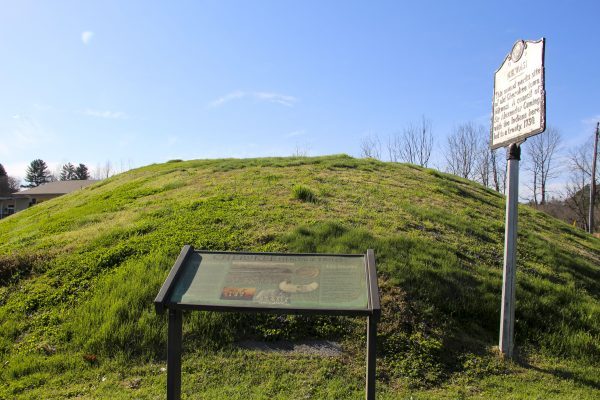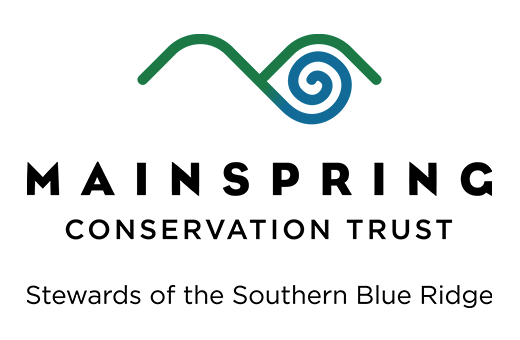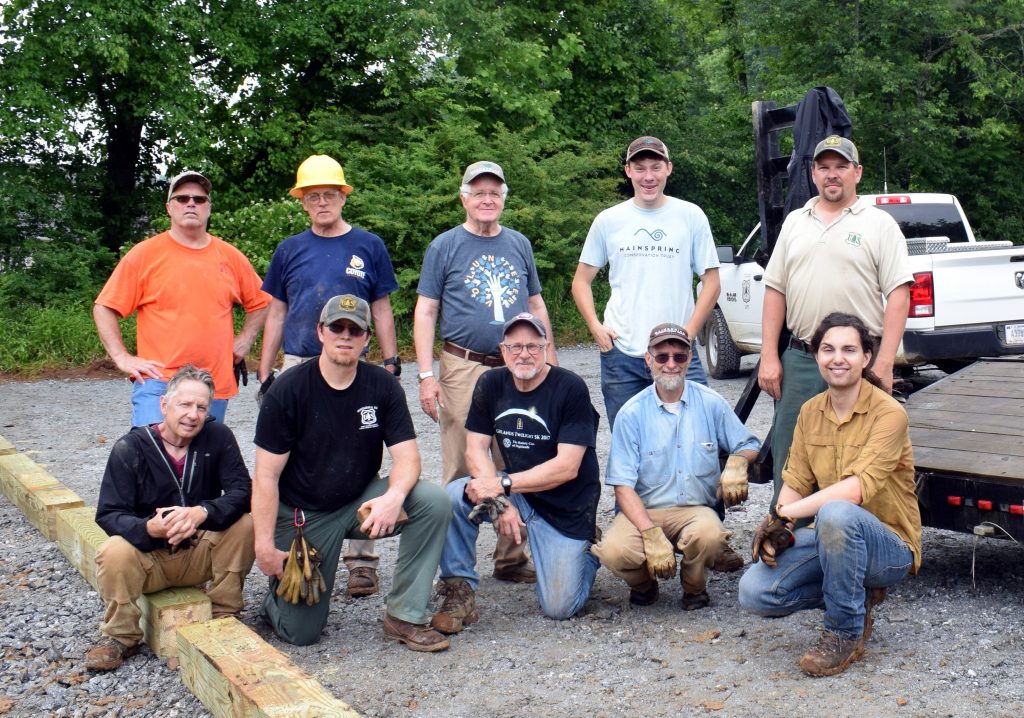
Access to the Bartram Trail in southern Macon County just got a little easier through a partnership with Mainspring Conservation Trust, the U.S. Forest Service, NC Wildlife Resources Commission, and the NC Bartram Trail Society.
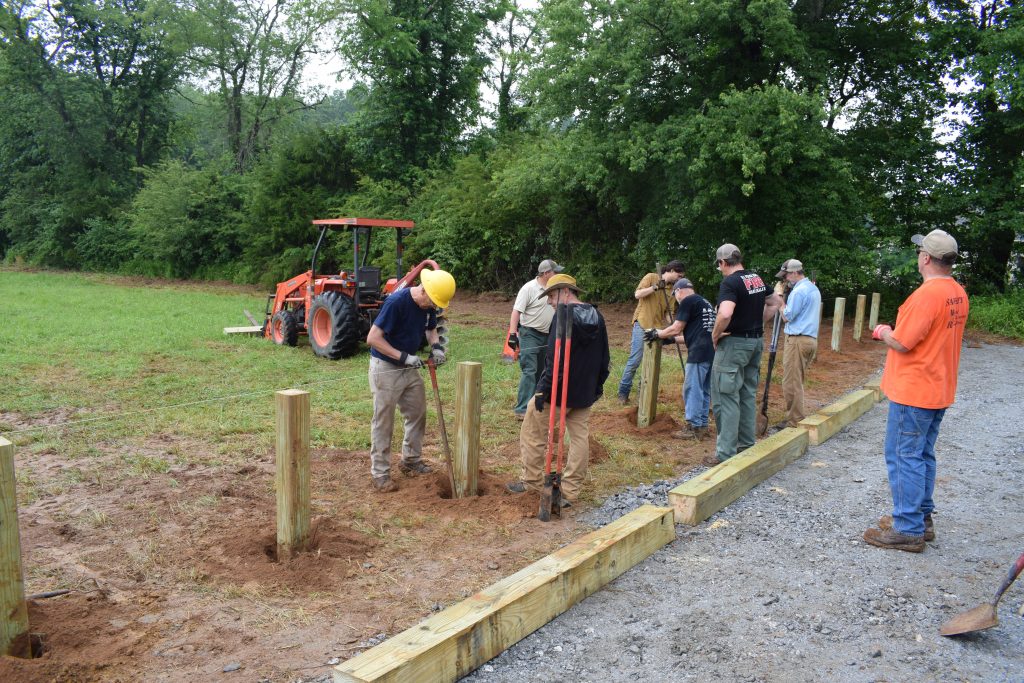
A new parking lot now sits directly across Hickory Knoll Road from the relatively new Bartram Trail trailhead. The gravel lot is on a portion of 72 acres Mainspring purchased in 2018 that borders Nantahala National Forest lands to the east and North Carolina Needmore Game Lands across the Little Tennessee River to the west. USFS prepared the site, the NCWRC delivered and spread gravel for the parking lot, and Mainspring and Bartram Trail volunteers placed bollards and installed bumpers to define the parking spaces.
Mainspring Executive Director Sharon Taylor says the parking lot is great for all outdoor enthusiasts. “It’s wonderful to have the lot available for Bartram Trail hikers, but also to fisherman and hunters who want to take advantage of Mainspring’s publicly assessable land and the Forest Service lands adjacent to the property.”
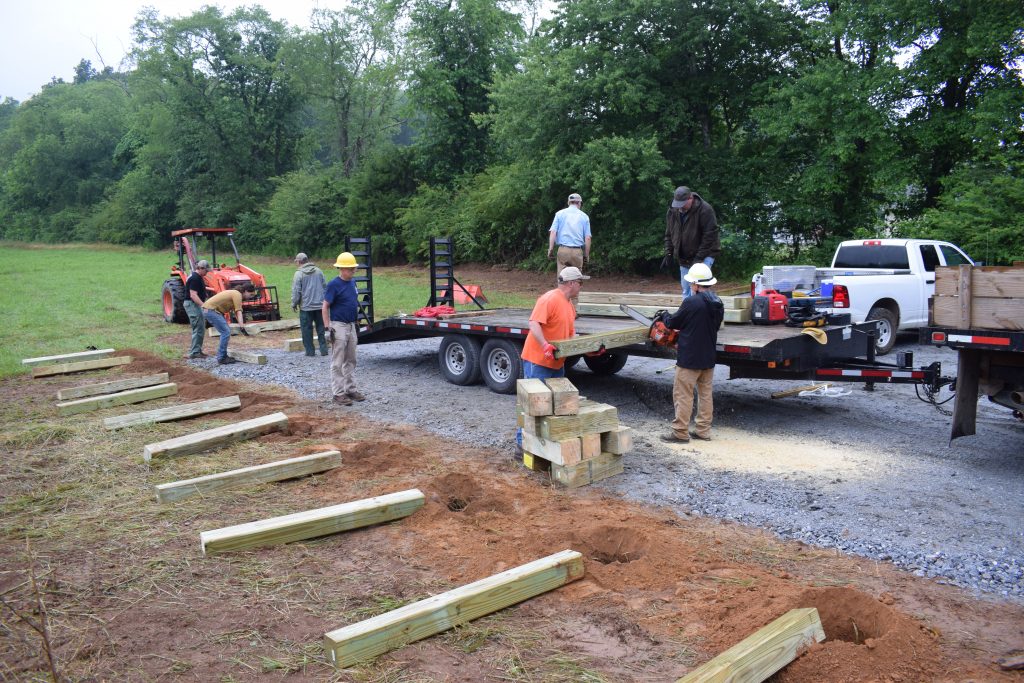
An informational kiosk and some landscaping, including native plants encountered by explorer and naturalist William Bartram during his 1770’s travels through the region, are also planned for the area.
